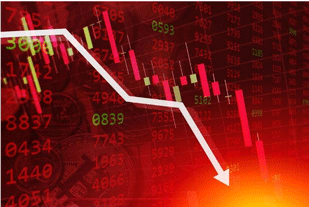Goa is abuzz with excitement as vintage bike and car owners, users, collectors and fans are decking […]

BULLS RACING, THOUGH ECONOMY DOWN! BY ARVIND PINTO
Finance, Nov 13- Nov 19 2021 November 12, 2021SWINGS: The stock market is swinging violently both ways. From day-to-day it shoots up only to sink to much lower levels. This is because of brokers’ golmaal. Retail investors should stay away from the stock market.
By Arvind Pinto
Though the economy is in the doldrums, the stock market keeps touching new heights. This is because of speculation and not any revival of the economy. In fact, the rich are becoming richer, while the informal sectors offer no jobs and the middle class has been marginalized.
SAMVAT Year 2078 on November 4, 2021 witnessed a great beginning for punters at the Stock Market, popularly known as Dalal Street in Mumbai. For the Sensex rallied to reach the 62,000 mark and Nifty topped Rs17,900 crore in a frenzied hour of trading! There were millions to be made for those who played it smart. Well, the stock market has only one way to go and that is up!
But for many non-players or new comers to the market, the persistent question is how does the stock market boom when the economy is in doldrums? Even many seasoned economists are unable to explain this phenomenon. For logic dictates that the stock market should be a function of the economy; this is to say if the economy is yet to recover from Covid19 pandemic lockdowns, should the stock market not also continue to remain flat?
reasons for the rise of the market
Probably one of the reasons for this rise is inflation. It is common knowledge that inflation in India is around 6%. Ask any housewife who has to budget herself depending on her income, she will tell you that prices of most commodities have risen again and keep going up in shorter time spans. There is an all round increase in prices of most items.
DREADED PRICE RISE
WHILE price rise is something homemakers dread, it is something that makes the corporates happy. Since rise in prices generates an increase in revenue and consequently a rise in their profits. The profits that a company makes increases its valuation and consequently encourages investors to come in and buy the stock, helping the market to grow.
Another probable reason is the liquidity in the market. Both the government in tandem with the Reserve Bank of India have attempted to stimulate the economy by ensuring that the economy has sufficient liquidity. While the economy has still to pick up in terms of demand, this excess liquidity has trickled into the stock market, raising the indices as also most stock prices.
As demand increases this money will be withdrawn from the market and employed in the manufacturing and service sectors. Thus, the rise of stock prices is inversely related to the downturn in the economy. This is especially relevant in India, where during the lockdown many of the new millennials, who had money and did not find ways to spend it, decided to invest in the market.
Reports say that the number of new investors who have registered since April 2021 is over 50 lakh. In the last fiscal (2020-21) there were more than 80 lakh new investors. Thus, India is witnessing a growing corpus of new investors who are placing their funds in the stock market rather than other available assets class.
LOOK TO THE FUTURE
STOCK markets it is said look to the future as against today’s earnings. Does the stock market then portend that the Indian economy will rebound? Both the Reserve Bank of India, as also the government is optimistic about the revival of the economy. Even the World Bank believes that the Indian economy is expected to grow by 8.3% in its review of the year 2021-22.
Thus, there is a common consensus both nationally and internationally, that the Indian economy is not only on the path to recovery but will grow significantly in the years to come. Indeed, stock markets that look to future earnings have taken note of this factor.
One of the key drivers of the stock market are Foreign Institutional Investors (FIIs) that believe that there is money to be made in the Indian stock markets. From November 2020 to February 2021, FIIs made a net investment of $22 billion equivalent to Rs165,000 crore in the Indian markets. These investors look to making money here in India and the rising market has given more hope of earnings.
ONE of the questions on the mind of most investors is how high will the Sensex go. Even seasoned operators in the market would tell you “Never time the market.” For while most investment advisors and banks urge you to buy, they rarely tell you to sell. For like all salesmen, investment consultants and relationship managers of banks are appraised on their ability to induce their customers to buy stocks. For after you buy, they receive their commission and these “advisors” move on to the next customer. Often one is left holding stocks that have depreciated in value.
If you therefore have to enter the stock market, like many are in the processing of doing today, given the phenomenal rise in this asset class, attempt to do your own study, rather than going by what you are told. Always read the line at the bottom of all share prospectuses “Markets are subject to risks.”
One of the more familiar sayings of the market is “Do not put your eggs in one basket.” The adage goes “It is better to spread your risks.” Therefore, do not bet only on one stock, even if this is a blue chip. Spread your portfolio in various sectors to ensure that should one sector stagnate, there are other sectors that would compensate by increased profitability.
Further there are several options available in the market; options, futures, derivatives, indices. For the layperson, many of these are esoteric and should you decide to journey on as a professional investor, there is money to be made in many of these segments. However, it would be prudent to learn these processes before entering into these subtle modes of trading.
SOPHISTICATED INVESTORS
WITH the investing class in India growing sophisticated, the government has now opened a window for retail investing in government securities. The debt market as this segment is termed is both challenging and daunting. For this market comprises of buying and selling of a variety of government papers, various bonds both commercial and statutory. Trading in government securities was originally restricted to banks and commercial institutions, but now is being opened to private investors. However, one would need to study the nuances of investing in these markets before one can take the plunge.
Dalal Street is the talk of the town today. Of course, there have been market surges earlier; remember Harshad Mehta and later Ketan Dalal, when stock news was on the front pages of daily newspapers. But like all roller-coaster rides, all that goes up, must one day come down. Don’t be caught sleeping when the market crashes!















